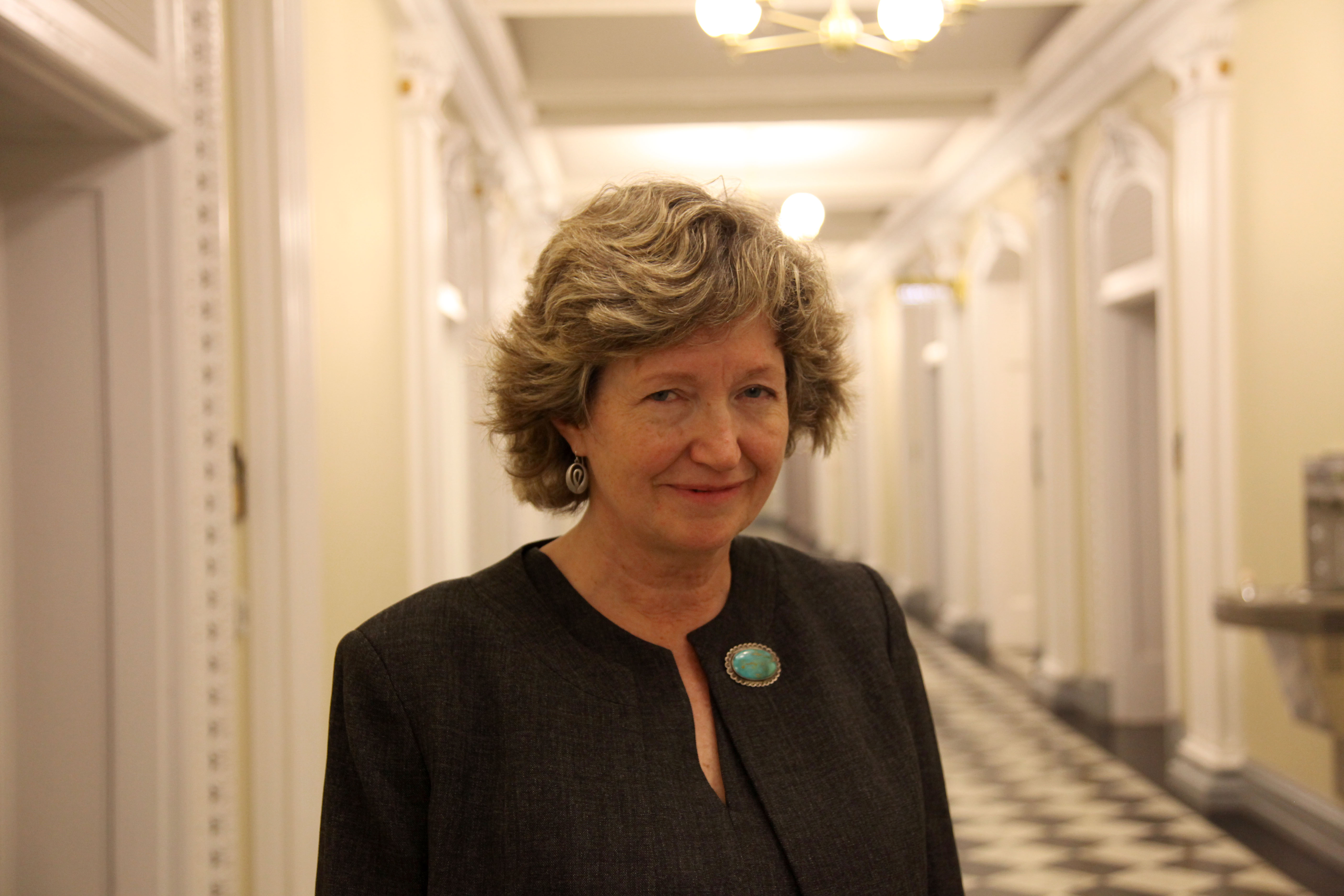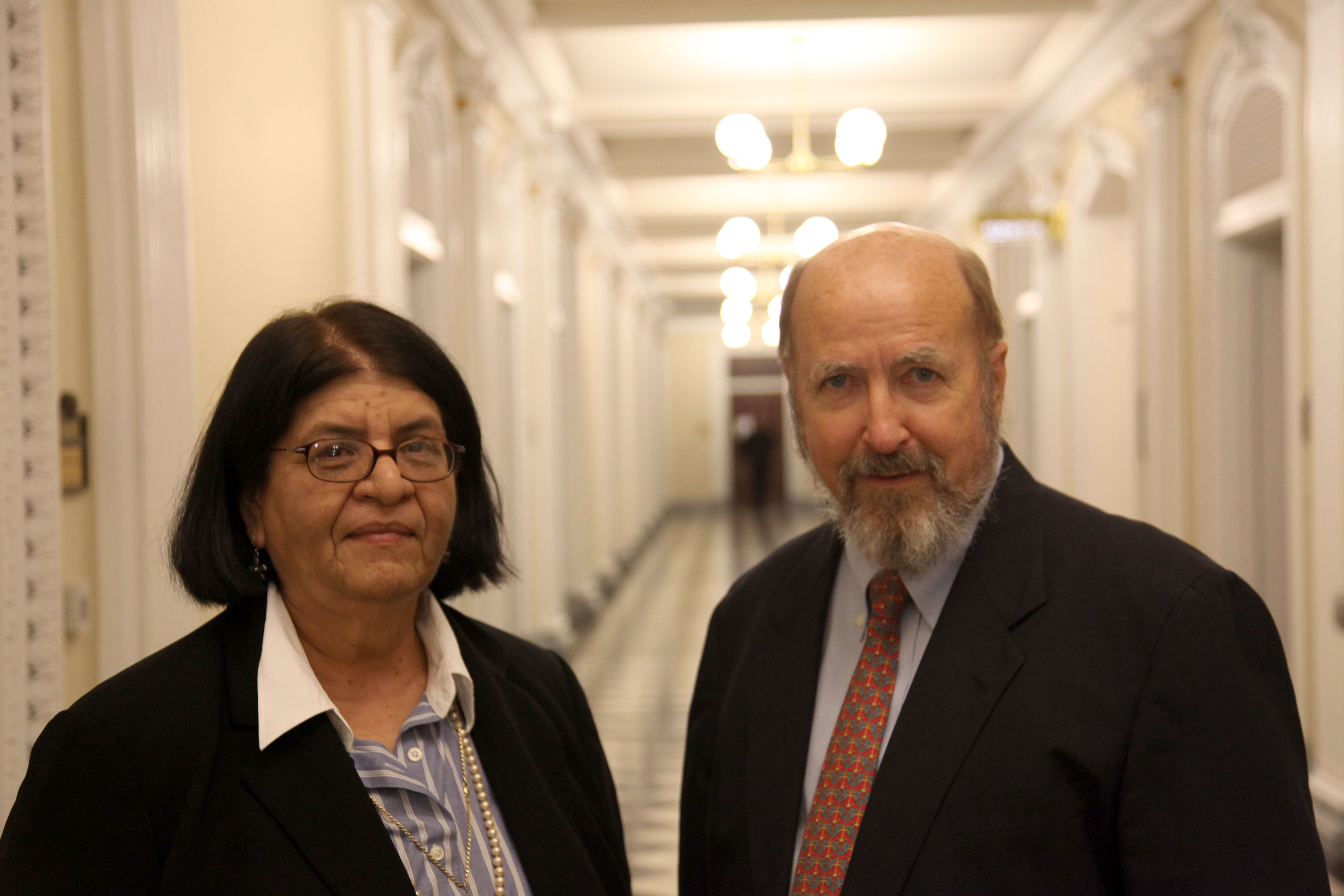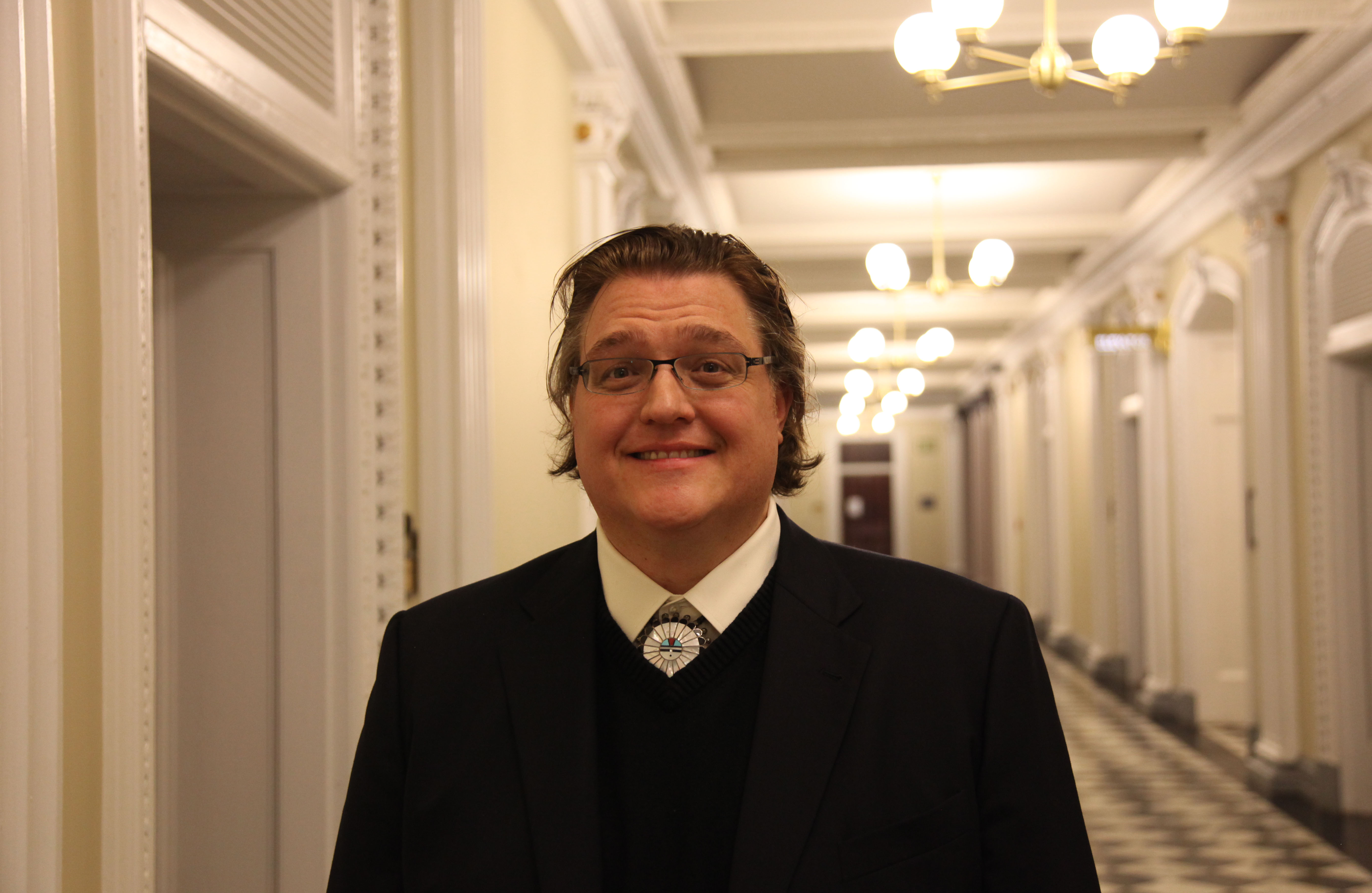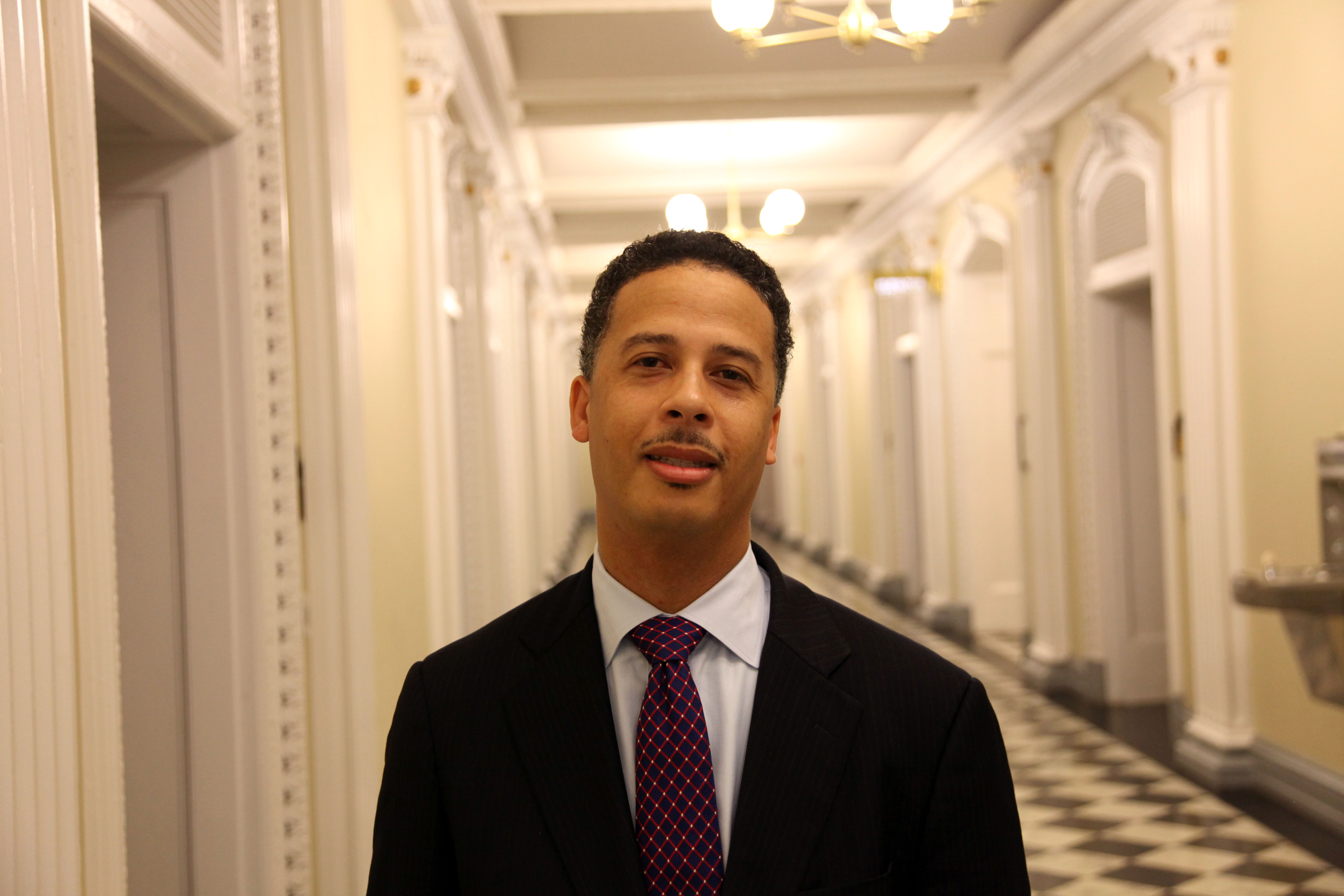Champions of Change Blog
Champions of Change Honors Domestic Violence Awareness Month
Posted by on October 26, 2011 at 4:28 PM EDTEd. Note: Champions of Change is a weekly initiative to highlight Americans who are making an impact in their communities and helping our country rise to meet the many challenges of the 21st century.
In honor of Domestic Violence Awareness Month, Valerie Jarrett joined me at a Champions of Change event to honor 14 individuals and organizations from across the country who are focused on ending domestic violence in their communities. At the event, the Champions from every walk of life shared their personal stories and discussed lessons they have learned while working to end domestic violence on a local level.
The Champions of Change program was created as a part of President Obama’s Winning the Future initiative. Each week, a different issue is highlighted and groups of Champions, ranging from educators to entrepreneurs to community activists, are recognized for the work they are doing to better their communities.
Recipients of the White House’s “Champions of Change” honors are:
- David R. Thomas M.S., Domestic Violence Education Program, Johns Hopkins University
- William Kellibrew, National Coalition on Black Civic Participation
- New York City Anti-Violence Project (AVP)
- Lena Alhusseini- Arab-American Family Support Center
- Johanna Orozco- Domestic Violence and Child Advocacy Center of Greater Cleveland
- Nicole DeSario- Teen Advocate
- Suzanne Dubus, Jeanne Geiger Crisis Center
- Becca Stevens, Magdalene/Thistle Farms
- Vincent Mazzara- Florida Coalition Against Domestic Violence
- Meg Schnabel, Redevelopment Opportunities for Women (ROW)
- Amelia Cobb, The Wright Group (TWG)
- People’s Place
- New Beginnings House (Otakahe Teca Tipi)
- Kabzuag Vaj, Freedom Inc.
For more information about each of these Champions of Change, please visit WhiteHouse.gov/champions
Programs of Change: Law Schools Explain Their Commitment to Public Service
Posted by on October 25, 2011 at 5:58 PM EDTEd. Note: Champions of Change is a weekly initiative to highlight Americans who are making an impact in their communities and helping our country rise to meet the many challenges of the 21st century.
At the October 13 Champions of Change event, Stanford Law Professor Deborah Rhode noted that it is a “shameful irony that the country with the highest concentration of lawyers in the world does such an abysmal job of ensuring that they are available for the vast majority of low-income people who need them, and whose needs are greatest.”
Millions of people in the United States cannot access legal assistance that is often critical to their wellbeing and freedom. All parts of the legal profession need to be engaged to address this crisis. There is no better place to begin than when future lawyers are at the very start of their careers – when they are still in law school.
Champion Martha Bergmark, President of the Mississippi Center for Justice, noted with some envy that when she was in law school, clinics were only just beginning. But as most Champions observed on October 13, times have changed and law schools now offer a wide range of opportunities for students to learn about legal issues involving poverty and equal justice.
Students are able to get hands-on experience helping victims of domestic violence, individuals who need a second chance, or Native Americans in need of defender services. There are a diverse range of opportunities for students interested in supporting the cause of access to justice.
Committing to Helping Those in Need, One Person at a Time
Posted by on October 24, 2011 at 5:07 PM EDTEd. Note: Champions of Change is a weekly initiative to highlight Americans who are making an impact in their communities and helping our country rise to meet the many challenges of the 21st century.
To be a legal aid advocate, by definition, is to be a champion of change in the lives of our clients and in the legal environment in which we operate. Over the past 44 years, Pine Tree Legal Assistance has been staffed by hundreds of champions of change, and the quality of their work is extraordinary. In Maine, the abolition of debtors’ prison, the right to due process and a fair hearing, the first successful employment discrimination lawsuits, improved housing codes, accessibility for people with disabilities, and an end to “robo-signing” in foreclosure proceedings are all legacies of Pine Tree’s commitment to individual clients who sought our help, one person at a time.
The downside to a great reputation is that, every year, we get more and more calls for help and must turn away a higher percentage because of limited staff resources. In 2009, Pine Tree only had sufficient resources to handle 15% of eligible requests for help and that percentage is dropping as we lose staff to new funding cuts. Every week, our staff say “no” to desperate callers with meritorious legal claims, knowing those callers will not find an attorney elsewhere to take their case. Instead, we can only do our best to ensure that Maine people understand their legal rights and have some tools to enforce them in Court or before administrative agencies. Until the advent of the Internet, we relied on printed versions of in-house publications such as “Do Your Own Divorce in Maine.”
Transforming the Way We Care for Our Country’s Most Vulnerable Citizens
Posted by on October 24, 2011 at 3:08 PM EDTEd. Note: Champions of Change is a weekly initiative to highlight Americans who are making an impact in their communities and helping our country rise to meet the many challenges of the 21st century.
The Brownsville Community Health Center and Texas RioGrande Legal Aid have been recognized by the White House as Champions of Change for their Medico-Legal Partnership. The MLP model has emerged in recent years, growing from less than one hundred projects five years ago into a system that serves low-income patients in more than 235 hospitals and health centers around the country. It's a movement that grew from a fairly simple concept: that often patients who are poor need lawyers as well as doctors to address their medical conditions. A pediatrician in a health center in an impoverished community diagnoses a child as dyslexic, but realizes that the local school district is not providing special education services, or is frustrated because another child is not responding to asthma treatments because she lives in a mold-invested apartment. At the Brownsville Center, both of those patients are referred to the TRLA lawyer in the office down the hall, and legal advocacy for the family becomes part of the treatment protocol.
Learn more about Health CarePursuing Equal Justice for All Native Americans
Posted by on October 24, 2011 at 12:38 PM EDTEd. Note: Champions of Change is a weekly initiative to highlight Americans who are making an impact in their communities and helping our country rise to meet the many challenges of the 21st century.
I am a member of the Squaxin Island Tribe of Indians, whose homelands encompass the southern waters of Puget Sound in Washington State. I was born and raised among my tribe, and continue to participate in the cultural activities of my people. I am proud of my Native American heritage, and I am grateful that my parents instilled in me a strong work ethic and a belief in the value of education. My father taught in a state juvenile detention institution for almost 30 years, and his example led me to focus my work on assisting adults and juveniles in tribal justice systems. Sadly, however, I am also motivated by an awareness of the tragic disparities faced by Native Americans as a result of both historical trauma and present-day realities. Native Americans die from alcohol-related causes at a rate six times higher than that of all other races in the United States combined; they are more likely than members of all other races to commit suicide, to be the victims of homicide, and to die from unintentional injuries; they suffer from higher rates of infant mortality; and the United States Department of Justice has determined that one in three Native American women will be raped during her lifetime. I have seen examples of these disparities among my own family and friends.
Engaging Reentry
Posted by on October 24, 2011 at 12:00 PM EDTEd. Note: Champions of Change is a weekly initiative to highlight Americans who are making an impact in their communities and helping our country rise to meet the many challenges of the 21st century.
I teach the Reentry Clinic at the University of Maryland Francis King Carey School of Law. Maryland Carey Law is among the handful of schools in the country that require each full-time day student to have a faculty-supervised, for credit experience providing legal services to those who lack Access to Justice. Essentially, we operate a large public interest law office within the law school – with more than 25 faculty and 250 law students providing more than 110,000 hours of free legal services annually.
I co-founded the Reentry Clinic with my colleague Sherrilyn Ifill in 2003. We started the Clinic because we felt strongly that the law school, as a state institution with a committed history of helping individuals and communities access justice, needed to be involved with the tangled legal issues that comprise the reentry process and to collaborate with the advocacy, policy and community-based organizations in Baltimore City that had long been engaged in reentry work.
- &lsaquo previous
- …
- 149
- 150
- 151
- 152
- 153
- 154
- 155
- 156
- 157
- …
- next &rsaquo
White House Blogs
- The White House Blog
- Middle Class Task Force
- Council of Economic Advisers
- Council on Environmental Quality
- Council on Women and Girls
- Office of Intergovernmental Affairs
- Office of Management and Budget
- Office of Public Engagement
- Office of Science & Tech Policy
- Office of Urban Affairs
- Open Government
- Faith and Neighborhood Partnerships
- Social Innovation and Civic Participation
- US Trade Representative
- Office National Drug Control Policy
categories
- AIDS Policy
- Alaska
- Blueprint for an America Built to Last
- Budget
- Civil Rights
- Defense
- Disabilities
- Economy
- Education
- Energy and Environment
- Equal Pay
- Ethics
- Faith Based
- Fiscal Responsibility
- Foreign Policy
- Grab Bag
- Health Care
- Homeland Security
- Immigration
- Innovation Fellows
- Inside the White House
- Middle Class Security
- Open Government
- Poverty
- Rural
- Seniors and Social Security
- Service
- Social Innovation
- State of the Union
- Taxes
- Technology
- Urban Policy
- Veterans
- Violence Prevention
- White House Internships
- Women
- Working Families
- Additional Issues





